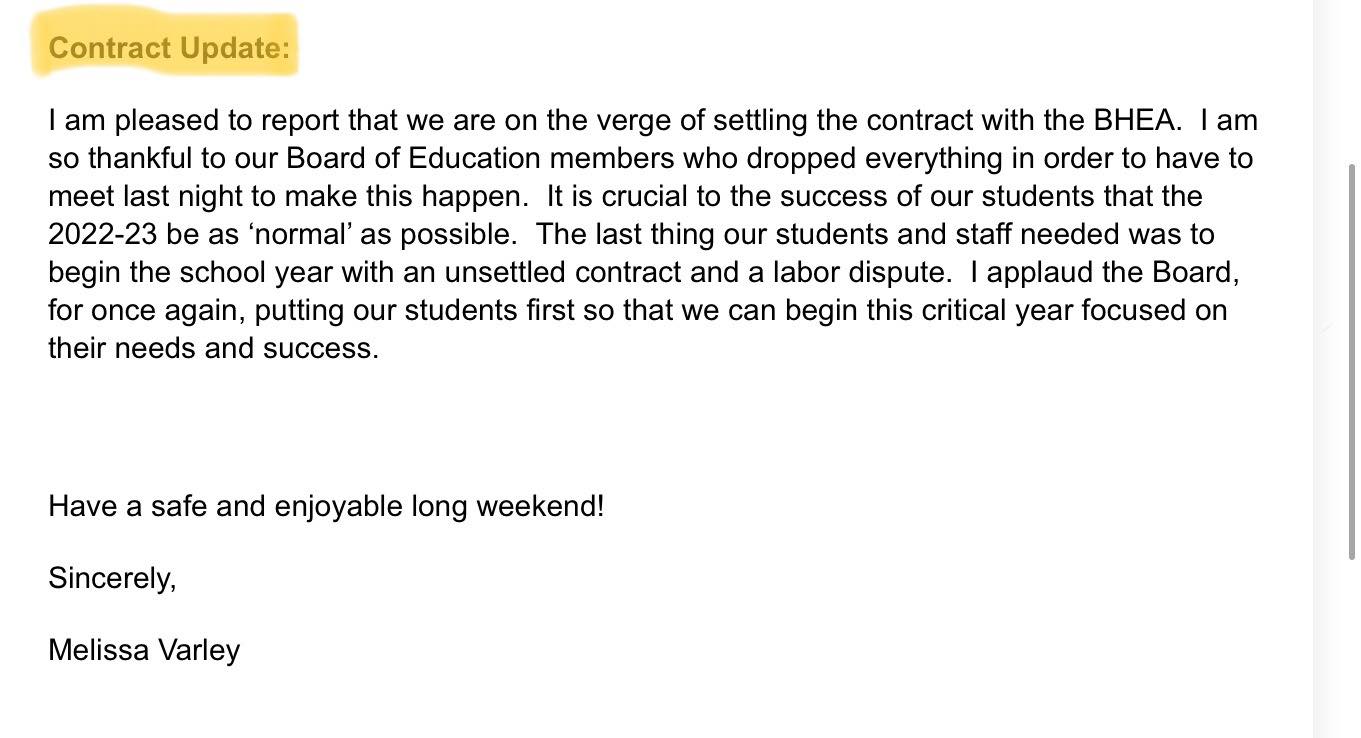Is this new policy simply another mechanism designed to restrict BOE Members who want change from expressing an opinion?
This change to BOE Policy 0164 requires that any new business be brought to the Board’s attention at least 48 hours before being brought up at a public meeting. According to Board President Angela Penna, it was advanced to help ensure that there are no surprises. A provision included would allow for emergent circumstances, which is a good thing, but what would even be better is if our BOE could function as a cohesive group so that there would be no need to prohibit certain members from speaking by writing convoluted and poorly worded policy.
It’s somewhat ironic that in the same meeting where the 48-hour rule was put on the agenda for a first reading, Mrs. Penna introduced a “walk-in resolution” regarding an employee’s resignation. While this seems to be a clear example of what constitutes an emergent circumstance (and while not labeled ‘new business’), this revised board policy, as written, fails to identify any criteria for such a designation – a point brought up by both Ms. Khanna and Mr. Hyman.
Let’s back up to what was the impetus for this policy revision: Dr. Foregger brought up the matter that (it appears) the BOE has decided that it can pay for the legal representation of the majority in the defense of THEIR ethics charges, but it will NOT pay for Ms. Akiri’s representation. (That is an entirely separate subject worthy of about seven articles, and should it continue, it will land this district in another lawsuit.) This writer is willing to concede that, in principle, Dr. Foregger should not have made the statement he did regarding the indemnification of Ms. Akiri in public. However, and this “however” is the size of Jupiter, had he gone through proper channels, this politically-charged BOE would have had carte blanche in its decision-making without any public awareness. So… Let’s be clear on just what kind of surprises Mrs. Penna is referring to.
It doesn’t refer to surprises such as Pamela Stanley incorrectly (and repeatedly) berating different residents for what she has determined is are untruths, and let’s not forget the king of all surprises: the motion during New Business in May of 2022, made by Mr. Cianciulli, to have the board attorney draft ethics charges against Ms. Akiri.
Mrs. Stanley suggested that this new rule would help meetings run more smoothly. Conveniently, this provision says nothing about limiting speeches like the ones she and Mr. Cianciulli frequently issue, with condemnations and put-downs of fellow board members. In this meeting Mr. Cianciulli states, with regard to one policy change, “I guess only people who have read that will understand that, but that’s okay.” In another Mrs. Stanley asks for two sentences to be read again “so that EVERYONE understands this.” There are a multitude of other such statements.
Mr. Cianciulli posited that this move would be better for transparency. Clearly, he means transparency for the Board itself, not the public. Forcing new business to go to the Board before a meeting, and therefore into a committee, effectively ensures that the public will only see items brought to light that the board majority agrees with. In another irony, Mr. Cianciulli previously determined that letting his fellow board members who were not on the policy committee see policies when they were first submitted by Strauss Esmay would “add another layer of confusion” and “be unnecessarily confusing”. Apparently, having things ahead of time is good only when it suits his or the board majority’s purposes.
It’s not clear to me where all this hostility started, but it’s well past time to put an end to it rather than writing bad policy in an attempt to protect your friends and silence those who would shine a light on the level of political maneuvering going on behind closed doors; on decisions made and actions taken that do nothing to further our student’s experience and achievement.





4 thoughts on “The 48 Hour Rule”